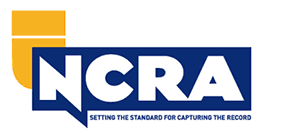
Code of Ethics
The Alaska Shorthand Reporters Association would like to educate you on the guidelines their members follow.
Since a court reporter is to be unbiased at any legal proceeding, it is only fair to you and your client to make sure that you have an impartial record-keeper. The Alaska Shorthand Reporters Association has adopted the professional standards set out below by the National Court Reporters Association.
NCRA Code of Professional Ethics
The mandatory Code of Professional Ethics defines the ethical relationship the public, the bench, and the bar have a right to expect from a Member. The Code sets out the conduct of the Member when dealing with the user of reporting services and acquaints the user, as well as the Member, with guidelines established for professional behavior. The Guidelines for Professional Practice, on the other hand, are goals which every Member should strive to attain and maintain. Members are urged to comply with the Guidelines and must adhere to local, state and federal rules and statutes. It should be noted that these guidelines do not exhaust the moral and ethical considerations with which the Member should conform, but provide the framework for the practice of reporting. Not every situation a Member may encounter can be foreseen, but a Member should always adhere to fundamental ethical principles. By complying with the Code of Professional Ethics and Guidelines for Professional Practice, Members maintain their profession at the highest level.
Code of Professional Ethics

A Member Shall:
1. Be fair and impartial toward each participant in all aspects of reported proceedings, and always offer to provide comparable services to all parties in a proceeding.
2. Be alert to situations that are conflicts of interest or that may give the appearance of a conflict of interest. If a conflict or a potential conflict arises, the Member shall disclose that conflict or potential conflict.
3. Guard against not only the fact but the appearance of impropriety.
4. Preserve the confidentiality and ensure the security of information, oral or written, entrusted to the Member by any of the parties in a proceeding.
5. Be truthful and accurate when making public statements or when advertising the Member’s qualifications or the services provided.
6. Refrain, as an official reporter, from freelance reporting activities that interfere with official duties and obligations.
7. Determine fees independently, except when established by statute or court order, entering into no unlawful agreements with other reporters on the fees to any user.
8. Refrain from giving, directly or indirectly, any gift, incentive, reward or anything of value to attorneys, clients, witnesses, insurance companies or any other persons or entities associated with the litigation, or to the representatives or agents of any of the foregoing, except for (1) items that do not exceed $100 in the aggregate per recipient each year, or, (2) pro bono services as defined by the NCRA Guidelines for Professional Practice or by applicable state and local laws, rules and regulations.
9. Maintain the integrity of the reporting profession.
10. Abide by the NCRA Constitution & Bylaws.
________________________________________
CLVS Code Of Professional Ethics
The mandatory Code of Professional Ethics for Certified Legal Video Services (CLVS) defines the ethical relationship the public, the bench, and the bar have a right to expect from a CLVS Member. The Code sets out the conduct of the CLVS Member when dealing with the user of video services and acquaints the user, as well as the Member, with guidelines established for professional behavior. By complying with the CLVS Code of Professional Ethics, CLVS Members maintain their profession at the highest level.
A CLVS Member must also adhere to the voluntary Principles for Professional Practice when providing legal video services as well as all local, state and federal rules and statutes.
Code of Professional Ethics
A CLVS Member Shall:
1. Render services to all parties in a competent manner. A CLVS shall maintain the integrity of the legal video profession.
2. Perform all tasks in a professional manner, observing all laws, rules and orders of the court relating to the proceedings.
3. Refrain from performing any service under terms or conditions that will compromise, in any way, his or her impartiality or the exercise of good judgment. A CLVS shall not adversely affect the fair and impartial portrayal of the proceeding.
4. Refrain from doing anything that affects the impartiality of the CLVS.
5. Absent the consent of the parties concerned or a court order, a CLVS shall not reveal confidential information entrusted in or provided to such CLVS by any of the parties.
6. Be truthful and accurate when making public statements or when advertising the CLVS’ qualifications or the services provided.
7. Determine fees independently, except when established by statute or court order, entering into no unlawful agreements with others on the fees to any user.
Refrain from giving, directly or indirectly, any gift, incentive, reward or anything of value to attorneys, clients, witnesses, insurance companies or any other person or entities associated with the litigation, or to the representatives or agents of any of the foregoing, except for (1) items that do not exceed $100 in the aggregate per recipient each year, or, (2) pro bono services as defined by the NCRA Guidelines for Professional Practice or by applicable state and local laws, rules and regulations.
